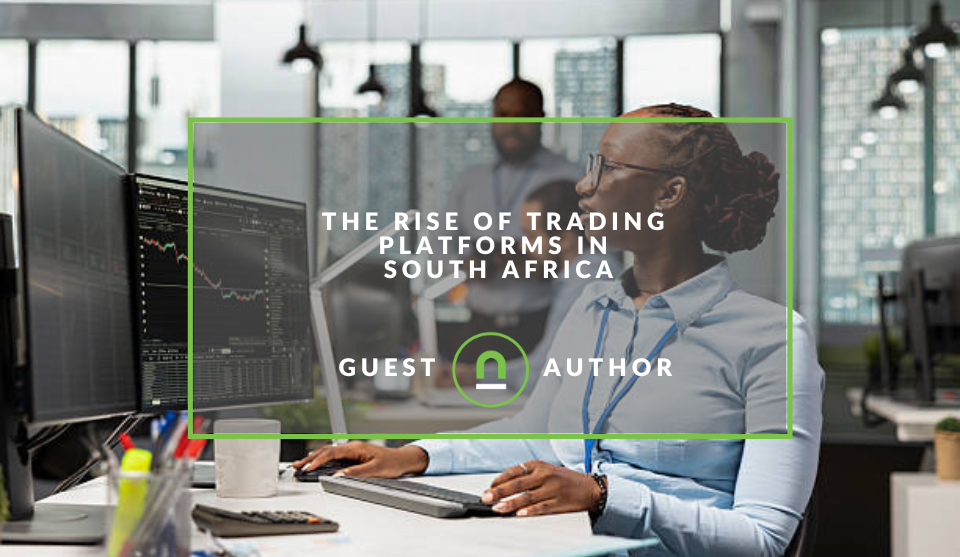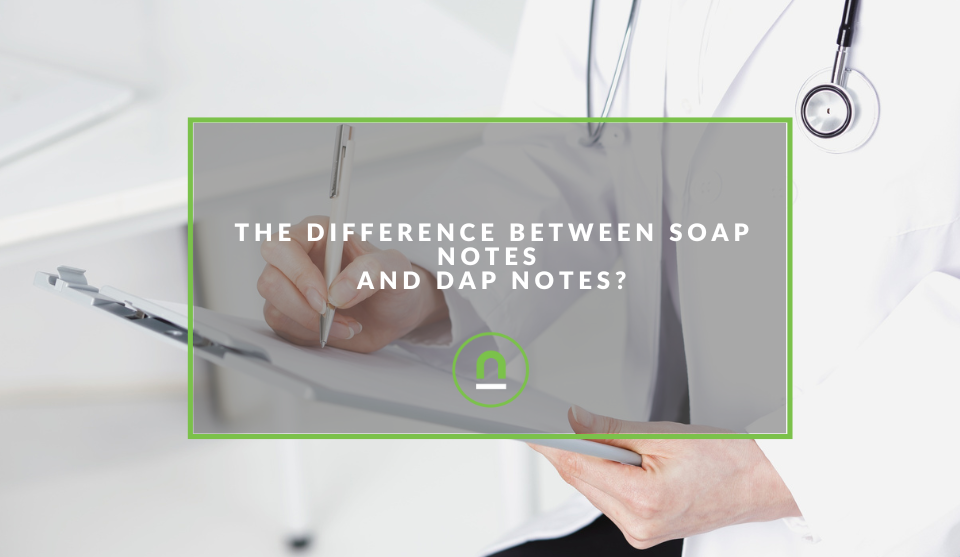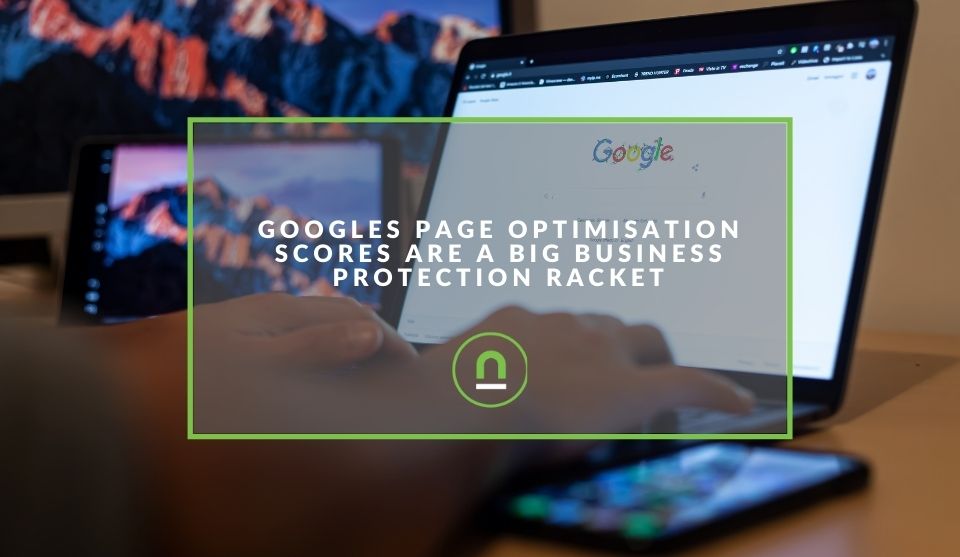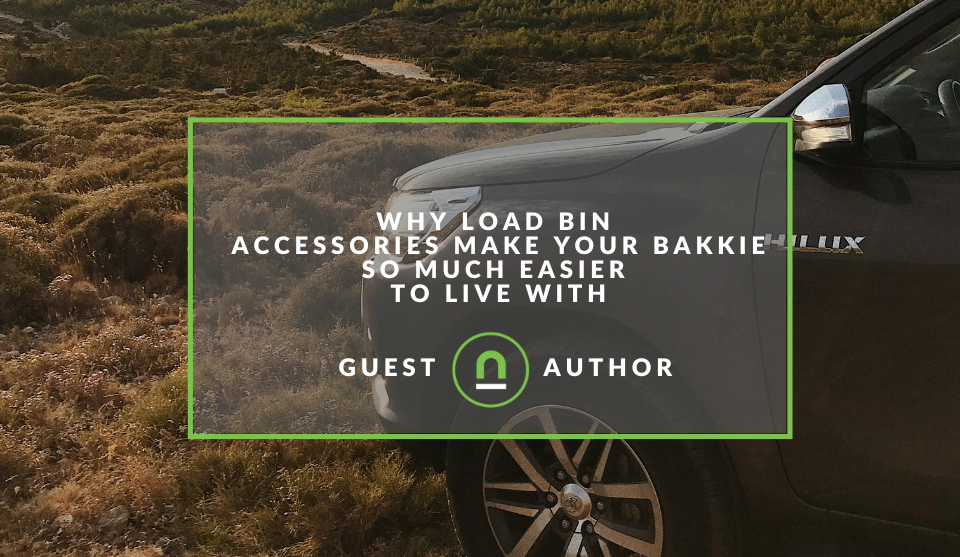Recent posts

Money Talks
The Rise Of Trading Platforms In South Africa
16 December 2025

nichemarket Advice
The South African VAT Threshold Chokehold
05 December 2025

Doctors Orders
The Difference Between SOAP Notes and DAP Notes
02 December 2025

Shopaholics
Lost Mary Vape Flavors List By Durity Distribution
01 December 2025
Popular posts
Extravaganza
Trending Music Hashtags To Get Your Posts Noticed
24 August 2018
Geek Chic
How To Fix iPhone/iPad Only Charging In Certain Positions
05 July 2020
Extravaganza
Trending Wedding Hashtags To Get Your Posts Noticed
18 September 2018
Money Talks
How To Find Coupons & Vouchers Online In South Africa
28 March 2019
Googles Page Optimisation Scores Are A Big Business Protection Racket
05 October 2021 | 0 comments | Posted by Che Kohler in nichemarket Advice
Google is undoubtedly one of the most revolutionary companies in the world, it's helped organise the internet in a way we never thought was possible, and its ranking algorithms and crawlers are second to none. It also becomes hard to keep up even if you have a superior algorithm due to the wealth of data Google can collect. Every day, users create new websites, webpages, browsing sites, running search ads, installing Google analytics and passing data on to Google's machine learning factory.
The network effects of Google search is undeniable. While they've provided a valuable service, they've not always used their market dominance in a way that is favourable to their inventory providers. The fact is WE make Google better, we provide all its inventory, but this relationship seems to have a growing imbalance. Instead of a symbiotic partnership, Google has trekked slowly towards a dictatorship.
Corporate profits dictate Google's moves; they are focused on shareholder value, and to do this, they need to squeeze every bit of capital out of their ad service. But being the innovative, creative company they are, Google does it in somewhat opaque implementations under the guise of "helping the end-user."
Oh, it's all about the searcher, isn't it? The fact that it also makes your margins nice and fat to stack your company balance sheet in the shortest amount of time is simply a happy accident, or so we are lead to believe.
There are several examples of this tactic being used, but I would like to focus on the latest rollout, the infamous page speed ranking factor.
What is the page speed/page performance ranking factor?
Page speed refers to the time it takes for a webpage to render in a browser, be it a desktop or mobile browser. Google has made page speed and page performance a direct ranking factor, meaning it carries a lot of weight regarding your ability to rank.
At Google, users come first, or so they say. While having a slow website is a pain, websites have always had a spectrum of speed in which the user would be willing to wait to access the information. Instead of letting the user decide how long they are willing to wait.
Google now decides for its users what the floor would be and thus limiting the number of options a user would access from their page 1 search results.
We also have to remember that every year devices get faster, browsers improve their caching, servers improve, access to higher broadband speeds increase, so why this desperate need to weigh on page speed?
If overall experience improves for the user, isn't this page speed improvement a marginal gain that shouldn't carry that much weight?
How do page speed ratings work?
The page speed loading gimmick revolves around aspects like,
- Image size rendering
- Image format rendering
- CSS sizing
- java script usage
- Libraries you reference for CSS and Javascript
- The sizing of certain page elements
- The HTML bloat of certain elements
- Server response times
- Server configuration of assets
- Use of distributed servers
Now for the average website owner, this is handled by their CMS or their developer. Many smaller site owners don't have much control over it, and even if they did, they would not know where to start. Perhaps you're using an out of the box theme; your theme developers aren't going to be bothered with configuring everything perfectly for you.
No plugins will solve all these issues because they are, in fact, highly customisable issues that require unique configurations for each website.
A lot of these optimisation metrics are, to me, vanity metrics, but Google has made them valuable as part of how they weight sites for rankings.
Why does it benefit big business?
As a smaller site, you have limited resources;
- You don't have the time or the expertise, or budget to hire an expert to go in and resize all your images.
- You don't have the resources to go and format all your images into a new generation format or have your CMS configure this for you. You don't have the time.
- You don't have time and money to get a UX/UI designer to audit your CSS and Javascript libraries to serve them for each page template on your site optimally.
- Most times, you cannot configure your servers because you're leveraging an affordable shared hosting provider.
Do you know who does have the resources to play this game? Larger sites can.
They can have private servers configured correctly or pay for premium CDN services. They can get a highly qualified UI specialist to evaluate all their page templates and ensure they are down to Google specifications.
They can afford to deploy site-wide changes as Google keeps moving the goal post and thus reap the majority of the reward from any weighting towards page speed as a ranking factor.
Why does this result in more significant profits for Google?
Instead of rating all sites on a more level playing field, they play towards the more prominent sites like publications and eCommerce sites that spend big with them. In general, seeing gradual improvement in their stats will encourage these sites to maintain their budgets with Google instead of pushing their capital to other platforms.
Keeping the more significant sites happy is a considerable amount of their baseline income. You see, centralising traffic around specific platforms means they make more income; let's say Google now sends more traffic to the most significant furniture retailer and furniture blog, which is your niche.
You, as an independent furniture store, either need to purchase posts on the furniture blog, which can redirect to you, run ads on their site or compete in the paid search space with the giant retailer to try and get more traffic if your organic allocation is limited.
The harder it is to break these top organic positions, the more valuable their traffic becomes, the more they can charge those who would like that traffic.
The continued centralisation leaves the little guy to compete for a smaller piece of the pie. The more sites they can marginalise, the more sites they can force to spend more with their paid search service to drive traffic to their sites. If you can't cut the mustard with page speed, your rankings are now limited, and you need to cough up the cash to get eyes on your site.
Manage your expectations
I know this may sound like a bit of a rant, but no, I don't think Google are evil; they're simply following what they believe is the best path to maximise profits in the short term. As they think about their business objectives, so should you; finding the most affordable path to clients or sales isn't as straightforward as it once was a few years ago. You will need to use an omnichannel approach and find the right balance to make profitable sales.
Organic search is still an excellent channel, I still believe in it, but I have to be honest about its limitations. We can't assume this infinite amount of traffic waiting to be captured each day; it's simply not true. There's an allocation for each site, and Google decides who gets the bulk of that allocation.
Until we see another search engine truly start to erode Google's market share, there is very little motivation for them to think about their inventory providers. They are a monopoly, and we are at their mercy; we have the play by their rules and learn to live within the boundaries they set for search traffic.
Let's review your influencer marketing
If you're interested in creating an organic search marketing campaign then contact us form and let us help you put together a campaign strategy.
Promote your business
Are you a business owner? Then why not register on nichemarket and put your business in front of thousands of nicheseekers every month. Registering with nichemarket is easy; all you will need to do is head over to our sign up form and follow the instructions. If you require a more detailed guide on how to create your profile or your listing, then we highly recommend you check out the following articles.
Recommended reading
If you have time to spare why not dive deeper down the rabbit hole and check out these posts for help on organic search marketing:
- Google Launches Neural Matching Algorithm
- Is Pushing Live Too Many Pages Risky For SEO
- Why Ranking #1 Does Not Always Equal Improved Leads or Sales
- 10 Reasons Why Your Site Doesn't Rank For *Insert Keyword*
- Google Trial More Related Searches On Mobile
- Google Launches Expandable Featured Snippets
- SEO Tips For Paywall Content
Tags: SEO, On-Page SEO
You might also like
Why Load Bin Accessories Make Your Bakkie So Much Easier to Live With
26 November 2025
Posted by Jasper J in Petrol heads
A look at how to get the most out of your bakkie, keep it protected as it works and why load bin accessories make your bakkie so much easier to live ...
Read moreHow Data Has Changed The Healthcare Sector
24 November 2025
Posted by Victoria Maxwell in Doctors Orders
Data drives healthcare evolution: enhancing precision medicine, improving diagnostics, streamlining operations, accelerating drug discovery and more
Read more{{comment.sUserName}}
{{comment.iDayLastEdit}} day ago
{{comment.iDayLastEdit}} days ago
 {{blogcategory.sCategoryName}}
{{blogcategory.sCategoryName}}


